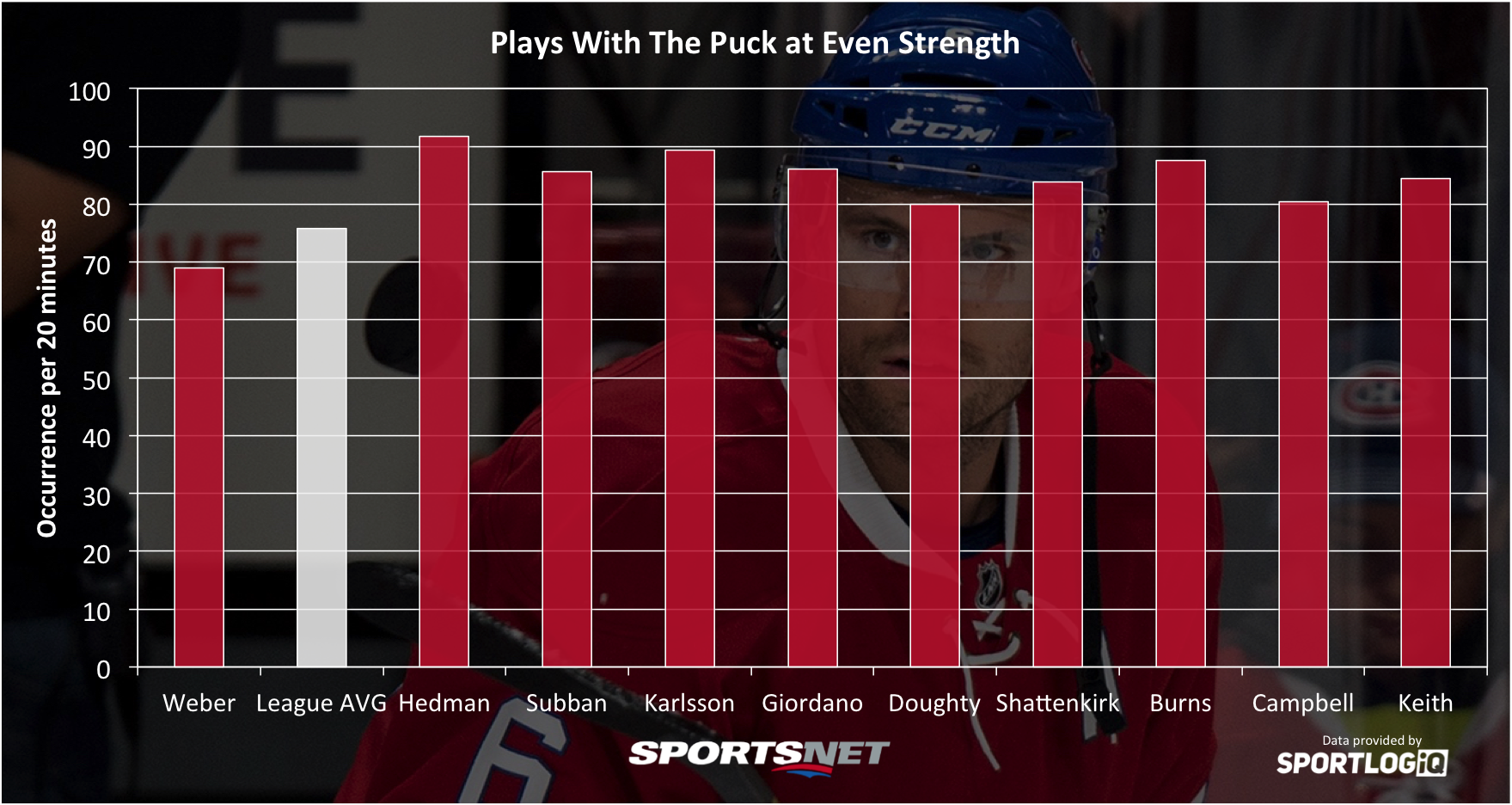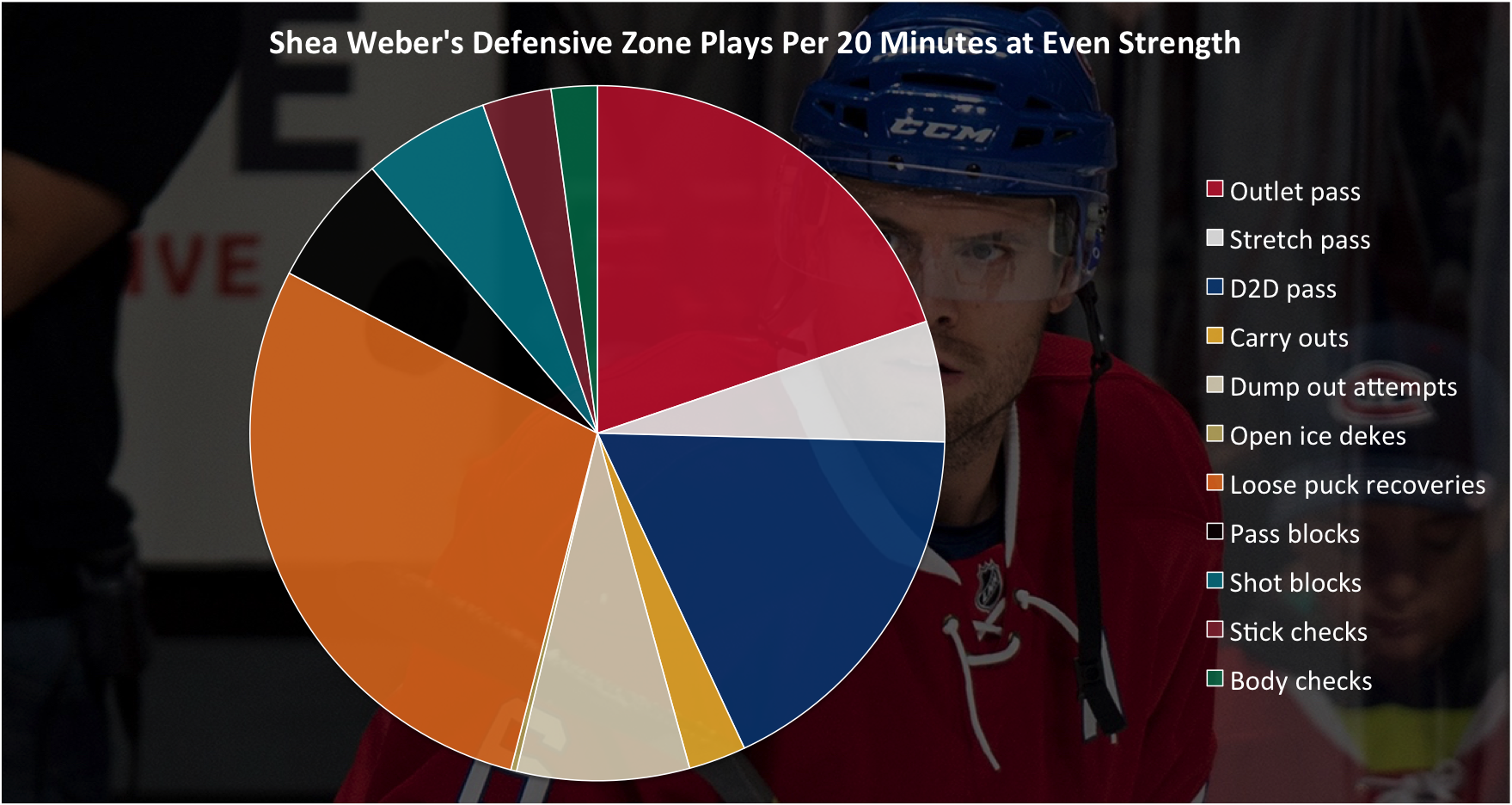When my statistical ranking of the top-20 defencemen in the NHL was published on Sportsnet, the most consistent question was “Where is Shea Weber?”
After revealing that he ranked 47th, a lot of people were in disbelief, even angry.
How could a player who was on Team Canada’s so-called shutdown pair at the World Cup rank so low?
For most players, 47th isn’t actually a low ranking, but Weber is commonly referred to as one of the NHL’s top five defencemen. So what exactly knocked Weber down so far? He scored 20 goals last season, and according to most people he’s among the best defensively.
The problems for Weber come in two forms, the first is that his on-ice results are not strong at even strength, with a -2.56 per cent relative Corsi and +0.5 relative goals for percentage the last three seasons according to Corsica.Hockey. In fact, the Nashville Predators allowed goals against at a slightly higher rate while Weber was on the ice than when he was off it.
Those results take a nice chunk out of Weber’s total scores in the evaluation, but what drives those results is even more important.

What hurts Weber more than anything is his level of involvement in the play. Take a quick look at some of Weber’s highly rated peers, and you can see that Weber plays the puck far less than they do; over 20 fewer times per minute than league-leader Victor Hedman, for example. What’s surprising though is that Weber is also less involved than the average NHL defenceman, making plays with the puck only 69 times per 20 minutes, with the average being 75.8 times.
Weber’s playing style is extremely conservative, especially in the defensive zone. He isn’t one of the slowest skaters in the league, but his agility and acceleration are below average, and that may be what leads him to be so tentative; he doesn’t like to go for the puck unless he has no other choice.
This conservative style is at its most apparent in the defensive zone, where Weber relies heavily on his teammates to put pressure on puck carriers, while he sticks very close to the net.
That style of play does lead to Weber stopping a higher than average number of high-danger chances either by blocking back-door pass attempts, shots from the slot, or simply out-muscling players who get close to him. It also leads to his team struggling to get the puck and break out of the defensive zone, resulting in more shots against.
Compared to most players, the shots against while Weber is on the ice are of substantially lower quality, but because the volume is significantly higher as well, his impact on goals against remains a negative one.
Essentially, Weber can be good defensively, and have a net negative defensive impact all at once.
The frustrating thing about Weber’s style is that when he does make plays, he’s a good decision maker. Focusing on the defensive zone again, we can look at exactly Weber does as a proportion of his total plays there.

Per 20 minutes of even-strength play, Weber makes 37.4 plays for or with the puck on average.
Of those 37.4 plays, 31.3 per cent clear the defensive zone, and 28.1 per cent clear the defensive zone with control. Based on a quick study I did last season on zone clearing efficiency, those numbers stack up pretty well in the top half of the league for defencemen.
The problem for Weber isn’t that he loses puck battles, commits turnovers, or overpasses to his defence partner and puts him in trouble; it’s that he just doesn’t want the puck on his stick when he can avoid it.
That limits the amount of influence he can exert on the game, which is a shame because he’s a very good hockey player.








